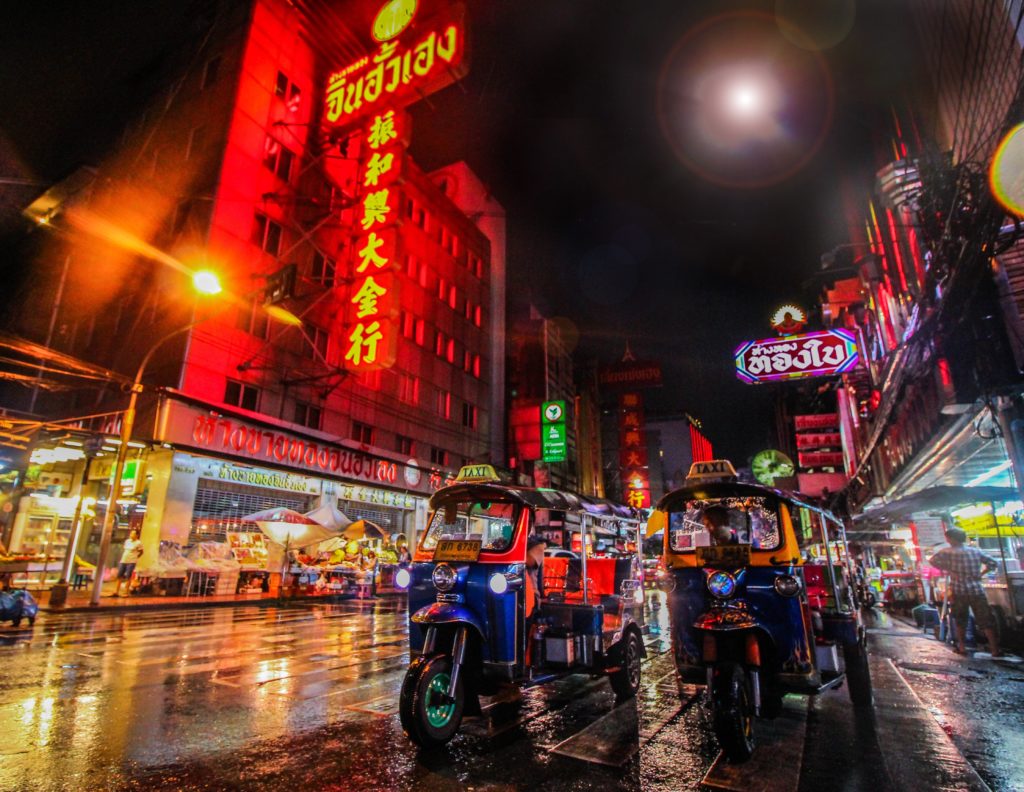Thailand Property Report by Dawn Ferguson – With housing allowances in the range of Bt70,000 to Bt100,000 a month, Bangkok’s high-paid expatriates have money to burn – and they want homes with all the Western-amenities they’re accustomed too.
For condominium and apartment owners, this segment of the market is a potential gold mine, particularly given most of these expectations are here on a short-term basis. The statistics certainly are promising, but as competition grows, it’s not an easy market to enter.
CB Richard Ellis Thailand executive director James Pitchon told Property Report Thailand that demand for high-end rentals increased in 2006 and the number of expatriates in Bangkok with work permits grew to 67,412 in 2006, a 12.5% increase year on year according to statistics by the Alien Occupational Control division of the Department of Employment. The largest segment of this market is Japanese – 22% – as the so-called “land of the rising sun” is the largest foreign direct investor in Thailand.
Pitchon noted that the rental market is in actuality even higher, as those numbers exclude diplomats and agencies such as the United Nations. They also exclude foreigners without work permits, but Pitchon says they consider most of these to be part of the retiree market, who traditionally buy their units.
“The good news is that demand increased. Last year there was only a limited amount of new supply in apartments, and there were only about 330 units completed last year. But the number of condominium units grew by over 4,000 units. That will continue to be the case in the next two to three years,” he said, but added this figure excluded serviced apartments, which are considered a very different product – somewhere in between a hotel and an apartment. Many now have a hotel license, so they’re operating on a more short-term basis.
“From a supply point of view, the big question is, how many of these apartments are expat quality, and how many owners of these new condominiums will want to lease them out?” asks Pitchon. ”Recently a new supply has appeared in the downtown area, and there’s been a greater focus on small sized units, many of them aimed at the Thai market, so not all the new condo supply will be of a standard that appeals to expats, but there are a lot of condo units.”
Pitchon says the proportion of owner occupation and units purchased by people on a buy-to-lease basis varies from building to building: “Of the developments that are just coming up to completion, the number that will be available for rent ranges between 30-50% at the moment. So, although demand has risen, there will be quite a lot of condominium supply coming on.”
This means that competition is going to be tight in the coming year. Generally, expats given the choice would prefer a single ownership apartment, says Pitchon, because the owner is able to service all their requirements whereas in a condo the owner might not even be in Thailand. And in many cases the owner has not put in place a local manager to look after his apartment. So the challenge for condominium owners who have bought to lease out is how to manage their units because tenants will have questions.
“So if the air conditioner breaks down, who’s going to fix it? It will not be the staff looking after the common areas of the condominium, because their responsibility is not private property. So owners must think about how they will manage and maintain the units.”
This includes implementing pest control contracts, regular A/C maintenance contracts, and, most importantly, there has to be a clear understanding between the owner and the tenant of who’s responsible for doing what.
The most popular area for expats is still Sukhumvit, followed by Central Lumpini and the Sathorn area. There are two satellites, one being around the International School of Bangkok and there is also a smaller cluster around Bangkok Pattana School. As for the up-and-coming riverside, currently there is limited demand from expatriate tenants, generally because of access issues. A small segment of expats are heading to other areas, such as Thonglor. “Again you’ve got access to the skytrain but in a slightly lower density environment,” said Pitchon.
The expat rental market is driven generally by housing allowances granted to employees and employees generally spend all of their allowances, but not put their own money in. “The biggest change in the market has been that Japanese with families now receive higher allowances than they did previously,” says Pitchon. “Some will give Bt70,000 or Bt75,000 for a three-bedroom apartment. The Japanese tend to be at the lower end of the market but they are a significant level of demand.
“What’s happened is that much of the existing stock is over 10 years old. We’ve seen very few apartments built since the financial crisis over the last 10 years, more condominiums, and what has been happening is that new supply, with smaller units, is actually getting higher rents because it looks better. Modern design.”
As for housing rentals, Pitchon says the market is small because there is a limited supply of homes in central areas, including in the Sukhumvit area. “Sansiri on 67 had rented well, but there is a limited market for people with over Bt100,000 a month to spend,” he said. “There are few companies that pay that kind of housing allowance.”
As for two-tiered pricing for Thais and Foreigners, there really isn’t a Thai rental market. Given that Thais have the freedom to buy and sell what they choose, unlike foreigners, those with high salaries and incomes just won’t go out and rent 75,000 a month apartments. So there is no Thai market above Bt15,000 a month.
“The rental market is efficient in terms of transparent pricing, information on products and a regular turnover,” said Pitchon. “So if a building doesn’t maintain its standards, then new expats will not move in.”



